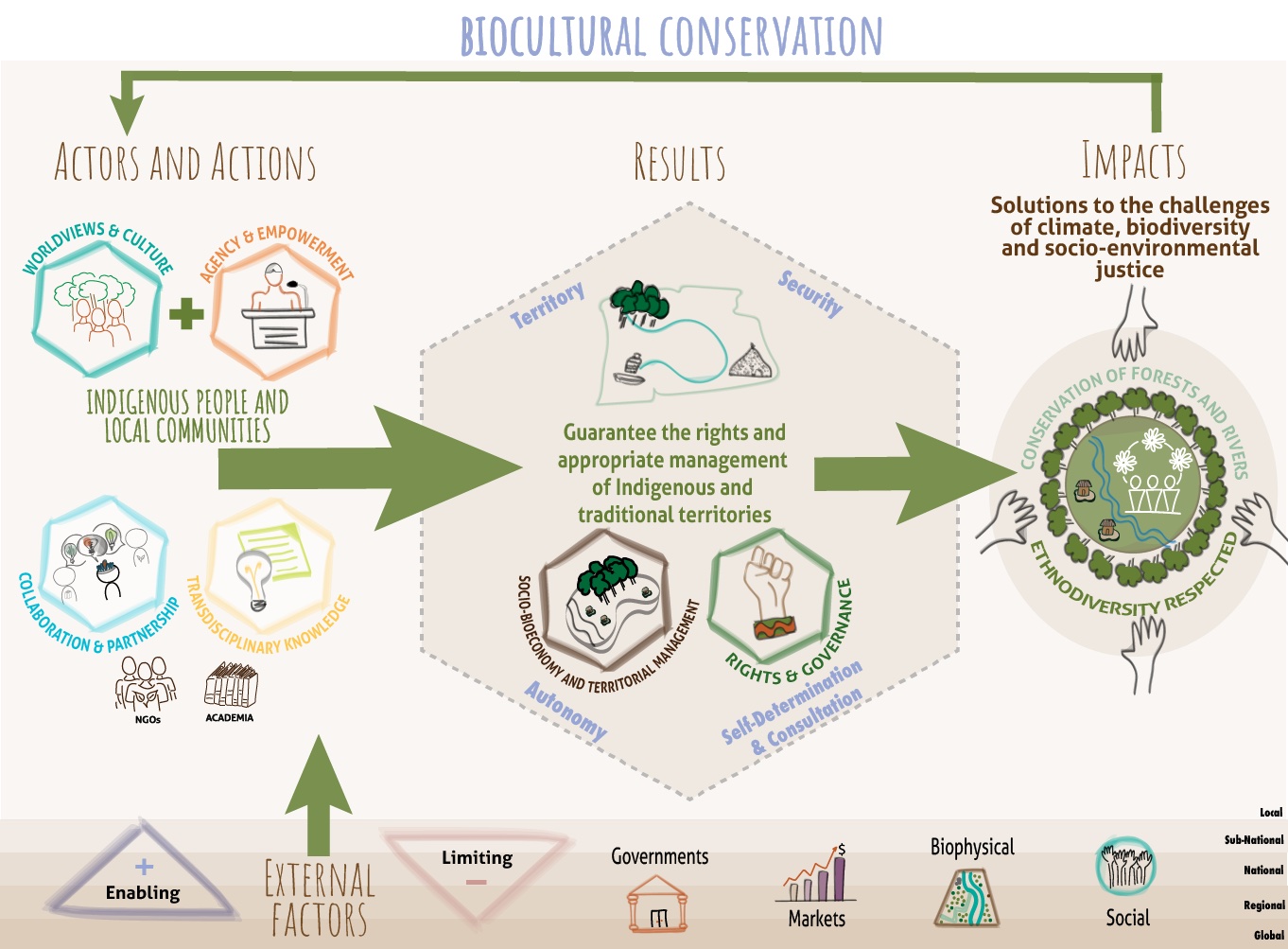Advancing the theory and practice of Biocultural Conservation in the Amazon
An affiliated program of the University of Florida Tropical Conservation and Development Program and the Biocultural Conservation Community on Zenodo.
Forest and riverine peoples play the lead role in effective protection of the landscapes where they live and have sovereign rights: Amazon Biocultural responds to key findings of the UF TCD Governance and Infrastructure in the Amazon Project.
- Key actors: Assessment of 55 cases of strategies for infrastructure governance highlighted the role of grassroots organizations: only 18% of the total cases, responsible for 50% of the most effective strategies.
- Emergent focus on issues of power… “However, we also suggest that there are significant power imbalances among actors with similar interests.”
See: GIA Project Final Report: Synthesis of Lessons and Recommendations for Infrastructure Governance
In conjunction with the Voices from the Forest workshop, we convened Indigenous/practitioner/academic working groups and co-constructed the following Theory of Change:

The point of departure for effective implementation of biocultural conservation is empowerment and agency by Indigenous (and other traditional) communities. Agency and empowerment are closely related to cultural attributes such as beliefs, relationships and language. Other key actors in this system can contribute through partnership and collaboration with Indigenous actors. Partnership and collaboration include exchange, co-production and application of knowledge. Biocultural conservation is ach...
Implications of these findings for research and learning:
- Valorization of Indigenous knowledge and action
- The need to focus on actions and impacts of government, economic and social interactions at multiple scales
- The academic community should prioritize knowledge co-production, communication and application to support Indigenous people
Based on this theory of change, and our role as researchers and activists who support Biocultural Conservation, we have divided our work into two main topics: Academia's Contributions and Local Leaders' Efforts to Implement Biocultural Conservation In Practice.
Archive
This project builds on our team's extensive experience with Community-based Conservation, Resilience, and Governance of Socioecological Systems in the Amazon over the past 40 years. Selected experiences and resources are available here.
Projects
Descriptions of past projects focused on community-based conservation, including partnerships and key outcomes.
Courses
Details about courses taught, including syllabi and teaching reflections.
Publications
A curated list of publications with summaries and download links (coming soon).
Contact
If you'd like to collaborate or learn more, feel free to reach out to us via email at bob@amazon-biocultural.org. You can also explore our affiliated programs at the UF Tropical Conservation and Development Program and the Biocultural Conservation Zenodo Community.
